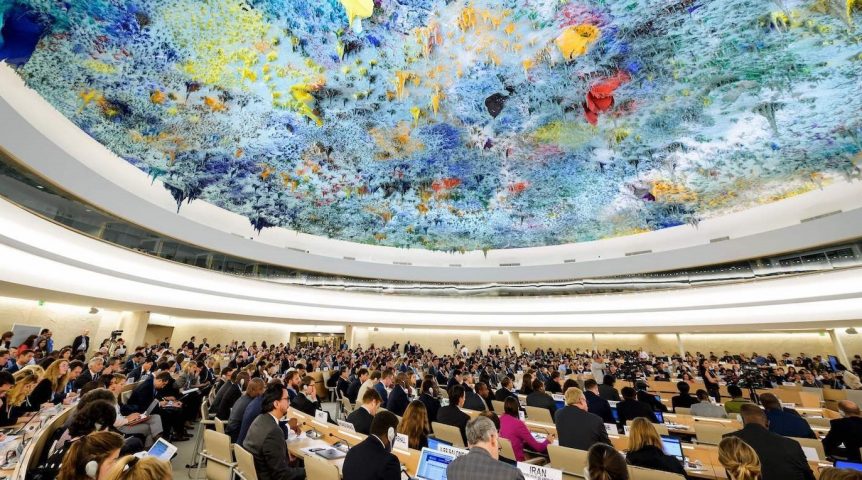In a joint human rights letter to the United Nations
523 local, regional and international human rights organizations- among them the Cairo Institute for Human Rights Studies- expressed serious concern at the increasing backlog and protection gap arising from the Treaty Bodies not reviewing States following COVID-19 pandemic restrictions. Given the plethora of human rights restrictions and violations arising from the responses to the pandemic, the role of the Treaty Bodies is essential; as they are the only independent and expert monitors of legally binding human rights treaties.
To the attention of the UN Human Rights Treaty Bodies and the Human Rights Treaties Branch of the OHCHR
We, the undersigned civil society organisations, write to you concerning the functioning of the UN Treaty Bodies during the COVID-19 pandemic. This pandemic has had a disproportionate impact on the work of the Treaty Bodies, with the postponement, cancellation and scaling-down of nearly all sessions scheduled for 2020. Since July 2020, most of the Treaty Bodies have met virtually and limited their activities, rescheduling all the reviews of states parties planned. The effects of the pandemic have been exacerbated by the financial crisis that the OHCHR and the UN are undergoing. This is an unprecedented situation requiring exceptional efforts from all stakeholders to overcome it. Appreciating the significant efforts of Treaty Body members to continue many activities, we remain concerned that the challenges and constraints analyzed very well by the Treaty Bodies’ Working Group on COVID-19 still apply.
The 28th August letter of the High Commissioner to Member States recommended that all sessions until the end of the year will take place online, while some will be cancelled. Although we understand that the current situation has created enormous challenges, we are seriously concerned by the increasing backlog and protection gap due to the fact that the Treaty Bodies are not reviewing States. We are also concerned that there is lack of clarity as to what work they will be able to carry out in the coming months.
We urge the Treaty Bodies and their Secretariats to schedule State reviews no later than 2021, and OHCHR to prioritise resources and tools for this. We recommend anticipating risks and possible scenarios with clear mitigation and contingency plans that are public and proactively communicated to civil society. Should the pandemic further prevent the scheduling of physical sessions of the Treaty Bodies in 2021, we consider that a pragmatic approach should be taken which allows online State reviews on a temporary and exceptional basis.
Learning from the experiences of the past months, the Treaty Bodies should define the conditions for online State reviews and be supported by the OHCHR and the other UN departments accordingly to allow such reviews to take place online or in a hybrid mode. Moreover, the webcast is essential in the specific context of online public sessions and must be reliable.
Predictability, transparency, inclusivity, and accessibility are essential conditions to enable the full participation of civil society, and all stakeholders, in the work of the Treaty Bodies, in particular if online reviews are organised. Civil society organisations require advance notice of the upcoming work of the Treaty Bodies, to enable them to undertake human rights monitoring, prepare alternative reports, plan briefings and raise the funds to undertake this work. In addition, sufficient time allocation and technical requirements, including accessibility for persons with disabilities relying on screen readers and sign language, and availability of good quality audio for interpreters, should be ensured for online private briefings with members of civil society organisations.
Given the plethora of human rights restrictions and violations arising from the responses to the COVID-19 pandemic, it is crucial for rights-holders that the Treaty Bodies, who are the only independent and expert monitors of the legally binding human rights treaties, are able to fulfill their mandates and independently assess states’ compliance. In fact, the relevance of the Treaty Bodies is at stake, if they are not able to continue to perform their fundamental mandate in the midst of a human rights crisis.
Sincerely yours,
List of signatories Here
Share this Post

